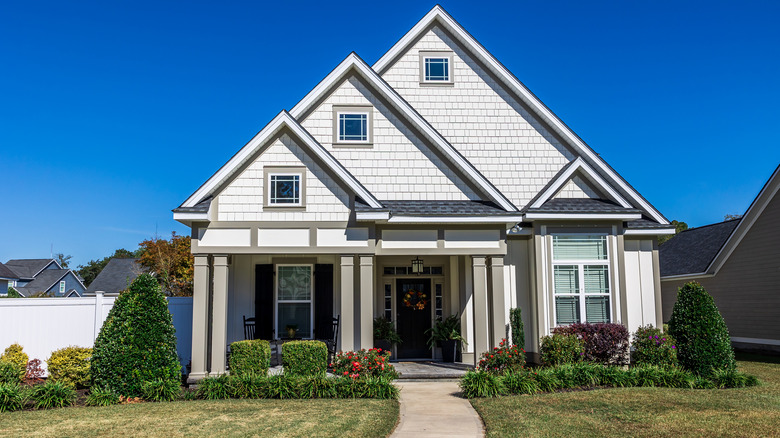Find Your Dream Home's Optimal Location: The 'Perfect Triangle' Explained
Any real estate expert will stress how important location is; it's one of the most important factors to consider when purchasing a home. When choosing the location of a house, you want to consider how close it is to your job and your leisure areas; these three places create the perfect triangle. Choosing a home in relation to where you work and where you spend your downtime ultimately affects your quality of life. This location determines how far you commute and how likely you are to go out or do something social, which could make all the difference in how you view your home area.
Of course, there is no one literal "perfect triangle" — this concept is going to differ for everyone depending on their needs and desires. If you're not someone who wants to spend their mornings or evenings in the car, living far from work isn't going to make you happy and could even make you resent your house. And if you're more of a homebody, then you might not necessarily want to be in the most social or active parts of a city.
Ultimately, figuring out what your perfect triangle is requires you to think about your lifestyle. Consider the location of your current home and whether you want to be closer or farther away from certain places. Figuring out what changes you would make to your current triangle will take you one step closer to the perfect triangle.
Distance is only part of the story
Determining the location of the points in your perfect triangle depends on how you want to spend your time. The average commute time in the United States is 26.1 minutes one way. In larger cities, you may spend 20 of those minutes (or much more) sitting in traffic. Or maybe your job is in the opposite direction of rush hour, so there is no congestion on your way to work. You may take public transportation and need to consider catching the bus or metro. Some people don't mind living farther away and dealing with a longer, busier commute; others may feel their quality of life diminished by spending that time in transition.
This can also apply to the distance from your social life, as well. Spending time with your friends and family may be of high importance to you, in which case, you may want to be within a certain drive time from your social circle. If your leisure time includes going out to restaurants, bars, gyms, or other hobby spots, you'll want to consider your distance and method of transportation to those locations. Or maybe you designed the perfect entertaining space in your home, so being closer to a city's social center isn't as important. Of course, you'll have to weigh whether it's more important to be closer to work or leisure time as well.
Balance location with other traits
When it comes to a new house, you also have to balance location with price and features or amenities. You have to decide whether location is more important than what you're willing to pay for any given home. For instance, properties in the city are often more expensive than those in the suburbs and rural areas; the cost of living in the latter two areas is about 20% less expensive compared to cities. You'll often pay a premium to live in the city center or in the hippest neighborhoods while giving up features like a large lot or more square footage. You may be willing to give up a central location to live a bit farther out and get more space for your money.
Similarly, location can often affect the features or amenities your home will have. You're unlikely to have your own in-ground pool or a large expansive yard living in the middle of the city. However, the condo or apartment building you're living in may have a rooftop lounge and a shared pool, which could be a trade-off. There may also be compromises, like buying a fixer-upper in your ideal neighborhood. You may be willing to put in work to make your dream home a reality, but you have to factor in the cost to renovate a living room or kitchen with the overall price. Overall, determine what amenities are a must for your home and whether they're more important than the location.


